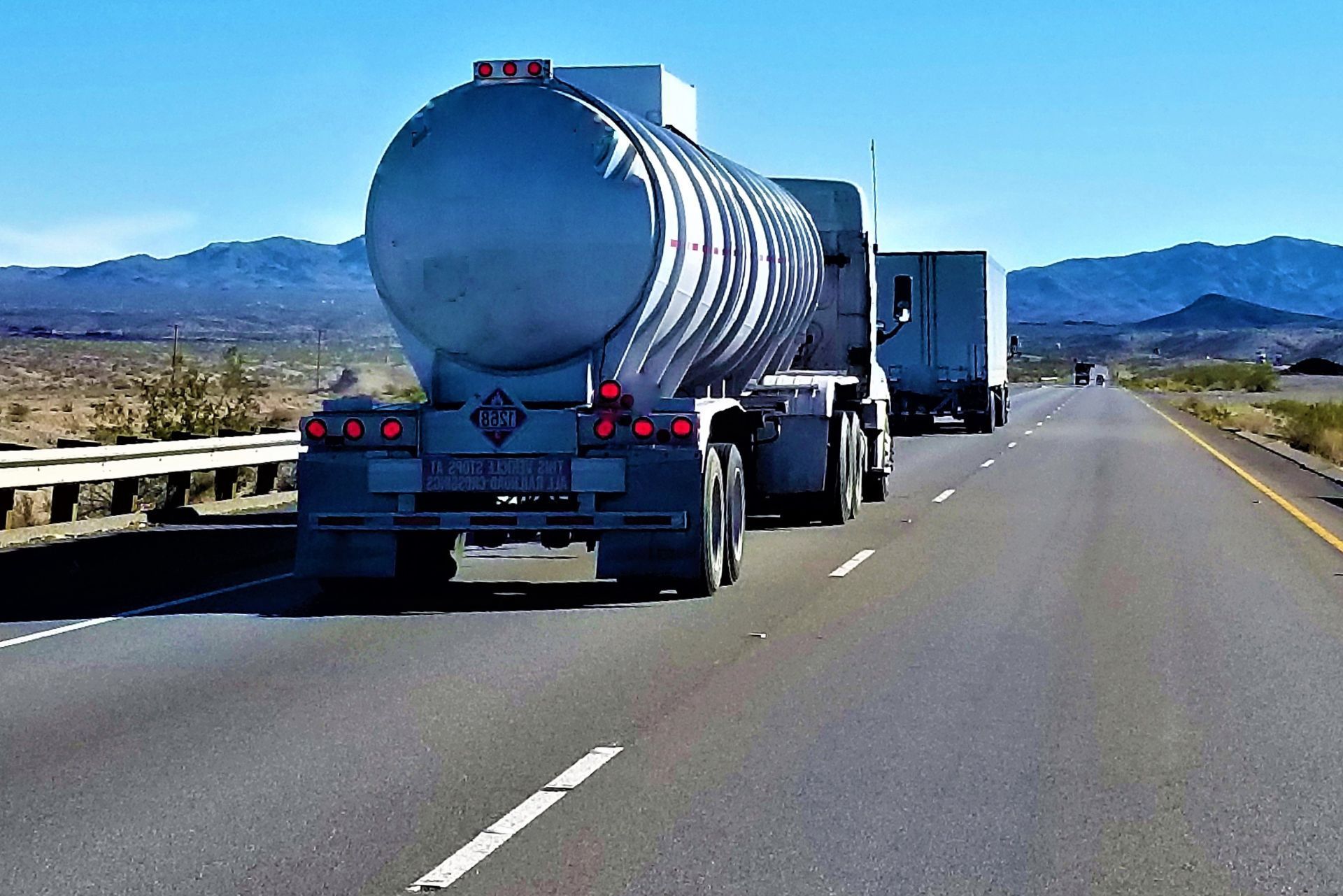The International Fuel Tax Agreement (IFTA) is a crucial component for commercial motor carriers operating across state lines in the United States and Canada. For those operating in Indiana, understanding the IFTA bond is essential for compliance and smooth operation. This article provides a comprehensive overview of the Indiana IFTA bond, its requirements, and its significance for trucking companies.
What is an IFTA Bond?
An IFTA bond is a financial guarantee that ensures compliance with the fuel tax regulations set forth by the IFTA. This agreement simplifies the reporting of fuel use by interstate carriers, allowing them to pay fuel taxes to their home state instead of each state they operate in. The bond serves as a safety net, protecting the state against potential tax evasion or non-compliance by carriers.
Purpose of the IFTA Bond
The primary purpose of the IFTA bond is to ensure that trucking companies fulfill their tax obligations. By requiring a bond, Indiana can secure funds that may be owed in case a carrier fails to report or pay the necessary fuel taxes. This bond acts as a form of insurance for the state, providing financial protection and ensuring that all carriers contribute their fair share to the infrastructure they utilize. Furthermore, the bond helps maintain a level playing field among carriers, as it discourages tax evasion and ensures that all companies adhere to the same regulatory standards. This ultimately fosters a more equitable environment for businesses operating within the state and across state lines.
Who Needs an IFTA Bond?
Any motor carrier that operates a qualified vehicle across state lines and is registered under the IFTA must obtain an IFTA bond. A qualified vehicle is typically defined as a motor vehicle used, designed, or maintained for transportation of persons or property and has a gross vehicle weight of 26,001 pounds or more, or is designed to transport more than 15 passengers, including the driver. In addition to large trucking companies, smaller carriers and owner-operators who meet these criteria are also required to secure an IFTA bond. This requirement ensures that even the smallest players in the industry contribute to the fuel tax system, which is vital for maintaining and improving the nation's roadways. The process of obtaining an IFTA bond involves assessing the carrier's financial stability, which can include reviewing credit scores and financial statements, ensuring that only responsible and compliant operators are granted the privilege of interstate travel.

Requirements for Obtaining an Indiana IFTA Bond
Obtaining an IFTA bond in Indiana involves several steps and requirements. Understanding these can help streamline the process and ensure compliance with state regulations.
Bond Amount
The bond amount required for Indiana IFTA is typically set at $1,000. However, this amount can vary based on the carrier's fuel consumption and tax liability. Carriers with a higher fuel usage may be required to post a larger bond to cover potential tax obligations. It's important for carriers to assess their fuel consumption patterns accurately, as underestimating could lead to unexpected financial burdens down the line. Additionally, maintaining detailed records of fuel purchases and usage can aid in determining the appropriate bond amount and ensuring compliance with IFTA regulations.
Application Process
The application process for an Indiana IFTA bond involves submitting specific documentation to the Indiana Department of Revenue. Carriers must provide details about their business, including their operational history, estimated fuel usage, and any previous tax liabilities. It is essential to ensure that all information is accurate and complete to avoid delays in processing. Furthermore, carriers should be prepared to provide supporting documents such as proof of insurance and identification, as these may be required to validate the application. Being thorough and organized in this stage can significantly expedite the approval process and help carriers avoid potential penalties associated with late filings.
Choosing a Surety Company
Carriers must work with a licensed surety company to obtain their IFTA bond. It is crucial to choose a reputable company that specializes in transportation bonds. Researching various surety companies, comparing rates, and checking reviews can help carriers find the best option for their needs. Additionally, it's advisable to consult with industry peers or associations for recommendations, as they may have insights into which surety companies offer the best service and support. Understanding the terms and conditions of the bond is also vital; carriers should clarify any questions regarding the bond's coverage and the claims process to ensure they are fully informed before making a commitment.
Cost of an Indiana IFTA Bond
The cost of an IFTA bond can vary significantly based on several factors, including the carrier's credit history, the bond amount, and the surety company chosen. Typically, the premium for the bond ranges from 1% to 10% of the total bond amount. For instance, if a carrier is required to post a $1,000 bond, the premium could range from $10 to $100 annually. Understanding these costs is crucial for carriers to budget effectively and ensure compliance with state regulations.
Additionally, it’s important to note that the bond amount itself is often determined by the estimated tax liability of the carrier. This means that carriers with a higher volume of interstate travel may face higher bond requirements, leading to increased premiums. Therefore, it is essential for carriers to accurately assess their travel patterns and tax obligations to avoid unexpected costs associated with their IFTA bond.
Factors Influencing Bond Premiums
Several factors can influence the cost of an IFTA bond. These include:
- Credit Score: A higher credit score often results in lower premiums, as it indicates a lower risk to the surety company.
- Business History: Established businesses with a clean operational history may qualify for better rates compared to newer companies.
- Financial Stability: A carrier's overall financial health can impact the bond premium, as surety companies assess the risk of non-compliance.
Moreover, the type of cargo being transported can also play a role in determining bond costs. Carriers dealing with hazardous materials or high-value goods may face higher premiums due to the increased risk associated with these shipments. Additionally, the geographical areas served can influence costs; carriers operating in regions with higher accident rates or regulatory scrutiny may encounter steeper bond requirements.
How to Save on Bond Costs
Carriers looking to save on their IFTA bond costs can consider several strategies:
- Improve Credit Score: Taking steps to improve credit can lead to lower premiums.
- Shop Around: Obtaining quotes from multiple surety companies can help identify the best rates.
- Bundle Services: Some surety companies offer discounts for bundling multiple bonds or insurance services.
In addition to these strategies, maintaining a good relationship with the surety provider can also lead to more favorable terms over time. Regular communication about the carrier’s operations and any changes in financial status can help the surety company reassess the risk and potentially lower the premium. Furthermore, participating in industry associations or training programs may provide additional resources and insights into managing bond costs effectively, ultimately benefiting the carrier's bottom line.
Maintaining Compliance with Indiana IFTA Regulations
Once an IFTA bond is secured, maintaining compliance with Indiana's regulations is crucial for carriers. Non-compliance can result in penalties, including the forfeiture of the bond and potential legal action. Understanding the intricacies of these regulations is essential for any carrier operating within the state, as it not only impacts their financial standing but also their reputation in the industry.
Filing Requirements
Carriers must file quarterly fuel tax reports with the Indiana Department of Revenue. These reports detail fuel purchases, miles traveled in each jurisdiction, and any taxes owed. Accurate record-keeping is essential to ensure compliance and avoid discrepancies that could lead to audits or penalties. It is advisable for carriers to implement a robust tracking system, utilizing technology to log fuel purchases and mileage in real-time. This proactive approach not only simplifies the reporting process but also provides a clear audit trail that can be invaluable during inspections or audits.
Renewal of the IFTA Bond
IFTA bonds typically require annual renewal. Carriers must ensure that their bond remains active and that any changes in their operations or financial status are communicated to the surety company. Failure to renew the bond on time can result in penalties and loss of operating authority. Additionally, it’s important for carriers to review their bond coverage periodically, especially if they expand their fleet or alter their business model. Changes in operations may necessitate adjustments in the bond amount or terms, ensuring that they remain adequately protected against potential liabilities.
Moreover, staying informed about any legislative changes or updates to IFTA regulations is vital. Indiana may introduce new compliance requirements or amend existing ones, which could affect how carriers manage their reporting and bonding obligations. Engaging with industry associations or attending relevant workshops can provide carriers with the latest information and best practices, helping them navigate the complexities of IFTA compliance more effectively.

Common Challenges Faced by Carriers
While obtaining and maintaining an IFTA bond is essential for compliance, many carriers face challenges throughout the process. Understanding these challenges can help mitigate risks and ensure smooth operations.
Understanding State Regulations
Each state has its own regulations regarding fuel taxes and IFTA compliance. Carriers operating in multiple states may find it challenging to keep track of varying requirements. Staying informed about changes in regulations and seeking guidance from industry experts can help navigate these complexities. Additionally, the dynamic nature of state laws means that what is compliant today may not be compliant tomorrow. Carriers must invest time in continuous education, perhaps through workshops or online courses, to stay ahead of regulatory changes that could impact their operations.
Record-Keeping Difficulties
Accurate record-keeping is vital for successful IFTA compliance. However, many carriers struggle with maintaining detailed logs of fuel purchases and mileage. Implementing efficient tracking systems and utilizing technology can simplify this process and reduce the risk of errors. For instance, mobile applications designed for fleet management can automate the logging of fuel expenses and mileage, providing real-time data that can be invaluable during audits. Furthermore, creating a routine for regular audits of these records can help identify discrepancies early, ensuring that carriers remain compliant and avoid potential penalties.
Financial Implications
Beyond compliance, the financial implications of IFTA can be daunting for carriers. The costs associated with fuel taxes can significantly affect profit margins, especially for smaller operators. Carriers must carefully analyze their fuel consumption and routes to optimize costs. Additionally, fluctuations in fuel prices can create unpredictability in budgeting. Implementing fuel management strategies, such as bulk purchasing or fuel cards, can help mitigate these costs and provide better control over fuel expenditures.
Technological Adaptation
The rapid advancement of technology presents both opportunities and challenges for carriers. While new software solutions can enhance efficiency, the initial learning curve can be steep. Many carriers may find themselves overwhelmed by the plethora of available tools, from electronic logging devices (ELDs) to advanced route planning software. Investing in training for staff and ensuring that everyone is on board with new technologies can alleviate some of these challenges. Moreover, embracing technology can lead to long-term savings and improved operational efficiency, making it a worthwhile endeavor for carriers looking to thrive in a competitive market.
Conclusion
The Indiana IFTA bond is a critical component for commercial motor carriers operating across state lines. Understanding the requirements, costs, and compliance obligations associated with this bond can help ensure smooth operations and avoid potential penalties. By staying informed and proactive, carriers can navigate the complexities of IFTA and focus on their core business activities.
In summary, the IFTA bond not only protects the state’s interests but also fosters a fair and equitable system for all carriers. By fulfilling their obligations, trucking companies contribute to the maintenance and improvement of the infrastructure they rely on, ensuring a sustainable future for the industry.
Article By: Ryan Spalding
Licensed Insurance Agent & Bond Specialist
Contact Us

